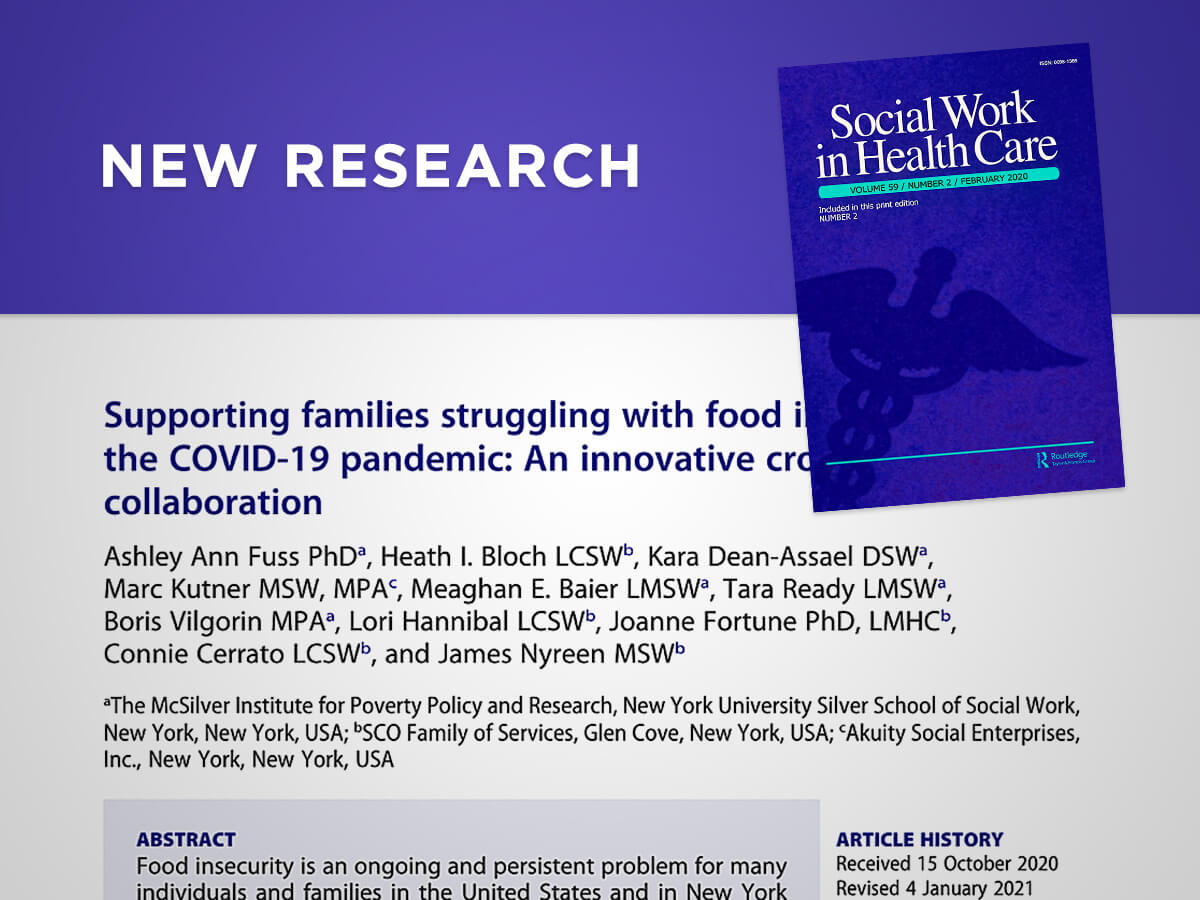NEW YORK, March 29, 2021 — Food insecurity is an ongoing and persistent problem for many individuals and families in New York City and nationwide. McSilver Institute Director of Evaluation Dr. Ashley Ann Fuss led a study published online last week in Social Work for Health Care that examined an innovative partnership to address the problem during the COVID-19 pandemic.
Food insecurity rates have increased almost three times over pre-COVID rates, according to a paper published last fall by the National Bureau of Economic Research. SCO Family of Services (SCO), a large human service provider in New York City and Long Island, launched a project with the online food delivery service DoorDash during the early days of the COVID-19 pandemic and successfully got food into the homes of more than 1,900 families.
The program provided prepaid meal vouchers reaching more than 7,500 individuals, including SCO clients’ spouses, children, and extended family members. “More than 90 percent of the people that received this service were of color; more than 65 percent were minor children; at least 50 percent were challenged by unemployment; 75 percent had physical, intellectual, and or behavioral health related challenges; and at least 85 percent received or were eligible for Medicaid coverage, ensuring that this service supported lowest-income families,” wrote the study authors. The program funders included Robin Hood Foundation, a 15 percent philanthropic match from DoorDash and an anonymous corporate donor.
It was intended to provide a quick and creative solution to an unforeseen and rapidly growing crisis: the economic devastation that the pandemic unleashed in vulnerable communities in New York. During the early months of the pandemic, government programs such as unemployment assistance and Supplementary Nutritional Assistance Program (SNAP) were overwhelmed, with delays and long wait times for applications to be accepted, reviewed, and acted upon.
“This paper highlights how non-profit and for-profit organizations can work together to support families experiencing food insecurity and demonstrates the need for more private-public partnerships to address social issues,” says Dr. Fuss. “Something that really resonated with me, when learning about this collaboration, was how families were able to get food vouchers in a quick and easy manner. So often families have to jump through hoops in order to get help or assistance and there is often a lot of stigma or shame attached to this, so what I really loved about this project was that families were able to get food in their homes with ease.”
In addition to Dr. Fuss, the study authors included the following McSilver Institute staff members: Dr. Kara Dean-Assael, Director of Clinical Education and Innovation, and Clinical Leader for CTAC; Meaghan Baier, Director of Healthcare Innovation; Tara Ready, Program Coordinator; and Boris Vilgorin, Health Care Innovations Officer. Outside co-authors included: Heath I. Bloch, Marc Kutner, Lori Hannibal, Dr. Joanne Fortune, Connie Cerrato and James Nyreen.
Read the study at Taylor and Francis Online [subscription required].




